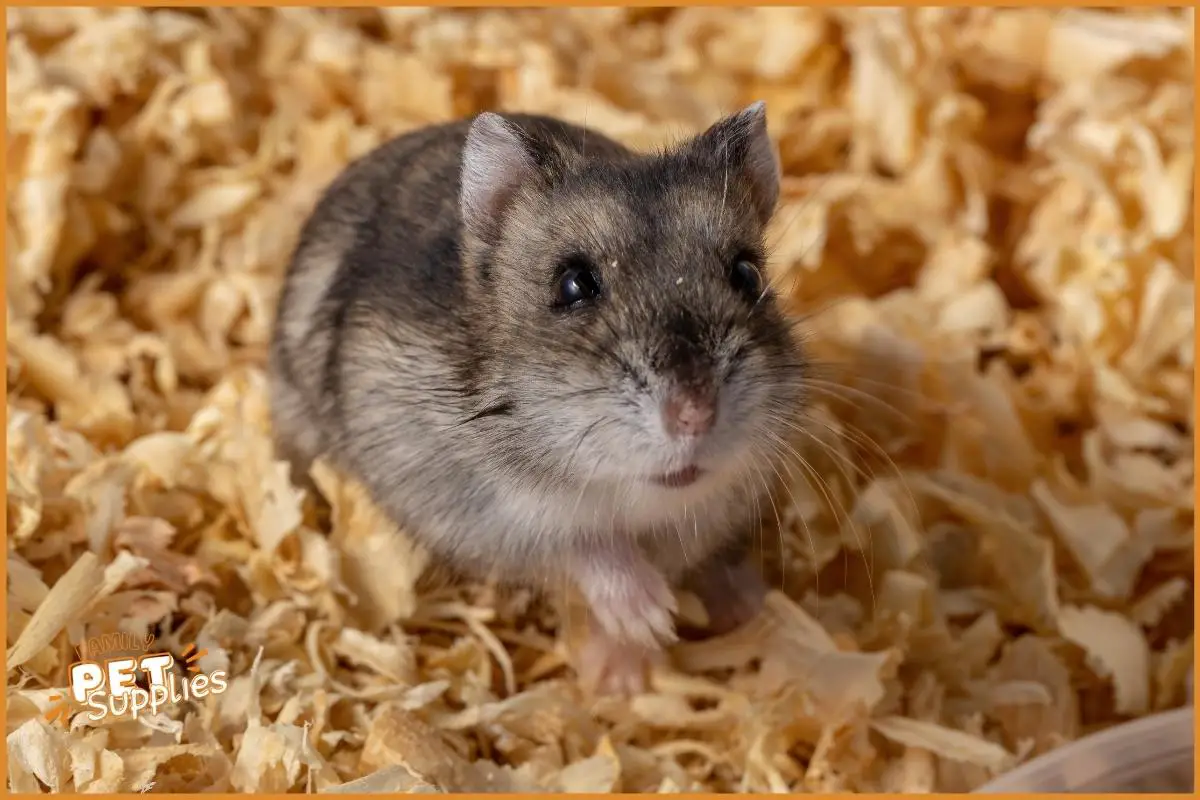Hamsters are typically better off housed individually rather than in pairs due to their solitary nature. Housing them in pairs can lead to territorial disputes, aggression, and potential harm. It’s generally recommended to keep hamsters in separate enclosures to ensure their safety and comfort.

Key Takeaways
- Hamsters have a natural inclination towards a solitary lifestyle and prefer to live alone.
- Housing hamsters in pairs can lead to territorial disputes, aggression, and potential harm to the hamsters.
- Ensuring the safety and comfort of hamsters is essential, and limited social interactions can be beneficial if introduced and monitored properly.
- Individual housing is recommended to promote the overall health and happiness of hamsters.
The Solitary Nature of Hamsters
You should understand that hamsters have a natural inclination towards a solitary lifestyle. While some animals thrive in social environments, hamsters aren’t one of them.
Hamster socialization may seem like a good idea, but it can actually lead to a lot of problems. When housed together, hamsters often engage in territorial disputes, which can result in aggression and potential harm. It’s best to keep hamsters in separate enclosures to ensure their safety and well-being.
The benefits of solitary housing for hamsters include reduced stress levels, decreased chances of fighting, and the ability to establish their own territories. So, if you’re considering getting a hamster, remember that they prefer to live alone and providing them with a solitary habitat will make them happier and healthier.
Territorial Disputes and Aggression
Hamsters can exhibit territorial behavior and aggression when housed together. Addressing aggression and managing territorial disputes are important aspects to consider when deciding whether to keep hamsters in pairs.
When hamsters are housed together, they may become territorial over their living space and resources. This can lead to fights and injuries. To minimize aggression, it’s crucial to provide each hamster with its own separate enclosure. Each hamster should have enough space to establish its territory and feel secure.
Additionally, providing multiple hideouts, food bowls, and water sources can help prevent conflicts over resources. Regular monitoring of the hamsters’ behavior is essential to detect any signs of aggression and to take appropriate action, such as separating them if necessary.
Potential Harm to Hamsters in Pairs
When housed together, hamsters can experience potential harm from territorial disputes and aggression. Keeping hamsters in pairs can lead to potential injuries and behavioral issues. Hamsters are naturally solitary animals, and when forced to live with another hamster, they may become stressed and anxious.
Territorial disputes can escalate into fights, resulting in physical harm such as bites and scratches. Additionally, aggression between hamsters can lead to behavioral issues such as increased aggression towards humans, depression, and decreased appetite.
It’s important to prioritize the well-being of your hamster and provide them with a safe and comfortable environment. Housing hamsters individually is the best way to ensure their safety and prevent potential harm.
Safety and Comfort Considerations
Ensuring the safety and comfort of your hamster is essential, so it’s important to consider their needs when deciding on their housing arrangements.
While hamsters are typically better off housed individually, they still require socialization and exposure to new environments. Although they’re solitary animals, hamsters can benefit from limited social interactions, as long as they’re properly introduced and monitored.
Introducing your hamster to new environments can also provide mental stimulation and prevent boredom. However, it’s crucial to remember that each hamster is unique and may have different preferences and tolerances.
Always observe your hamster’s behavior closely when introducing them to a new companion or environment to ensure their safety and comfort.
Why Individual Housing Is Recommended
Although it may seem counterintuitive, it’s actually recommended to house hamsters individually due to their solitary nature. There are several reasons for individual housing that contribute to the well-being of these small pets.
First, hamsters are naturally territorial creatures. When housed together, they may engage in territorial disputes and aggression, which can lead to injuries or even death.
Additionally, social isolation can have negative effects on hamsters, including stress, depression, and decreased overall health. By providing them with their own separate enclosures, you’re ensuring their safety and minimizing the risk of harm.
Furthermore, individual housing allows hamsters to establish their own territories, providing them with a sense of security and reducing the likelihood of stress-related behaviors.
Ultimately, individual housing is recommended to promote the overall health and happiness of hamsters.
Addressing Common Misconceptions
If you have heard that hamsters should always be kept in pairs, it’s important to address some common misconceptions. One of the most common myths is that hamsters are social animals and need the company of another hamster.
While it’s true that hamsters can benefit from social interaction, they’re actually solitary creatures by nature. In the wild, hamsters live alone in burrows and only come together for breeding purposes.
Keeping hamsters in pairs can lead to territorial disputes, fighting, and stress. It’s important to provide your hamster with plenty of mental stimulation and social interaction with you, their owner.
Spending time with your hamster, providing them with toys and activities, and giving them a comfortable and enriched environment will ensure they live a happy and fulfilling life.
Alternatives to Pairing Hamsters
Looking to provide companionship for your hamster without pairing them with another hamster? While it’s generally recommended to keep hamsters housed individually, there are alternative options to ensure they still get social interaction.
One option is group housing, where multiple hamsters are kept together in a large enclosure. This allows them to interact and play with each other while still maintaining their own space.
Another option is to provide your hamster with toys, tunnels, and other forms of enrichment to keep them mentally stimulated. This can help alleviate any loneliness they may experience.
Additionally, spending quality time with your hamster, such as handling and playing with them regularly, can provide them with the social interaction they need. Remember, while hamsters are solitary animals, they can still benefit from some form of socialization.

